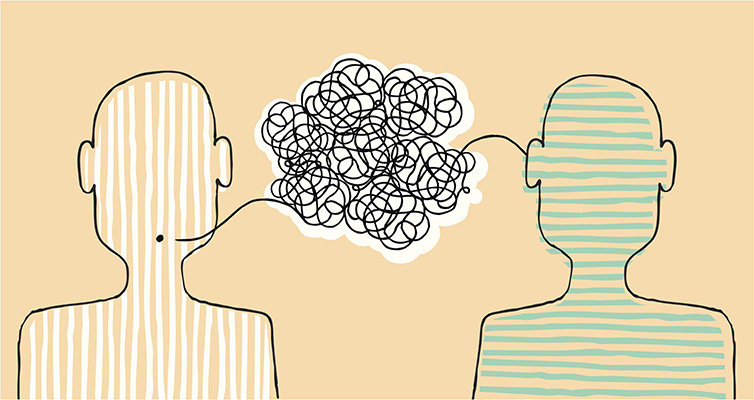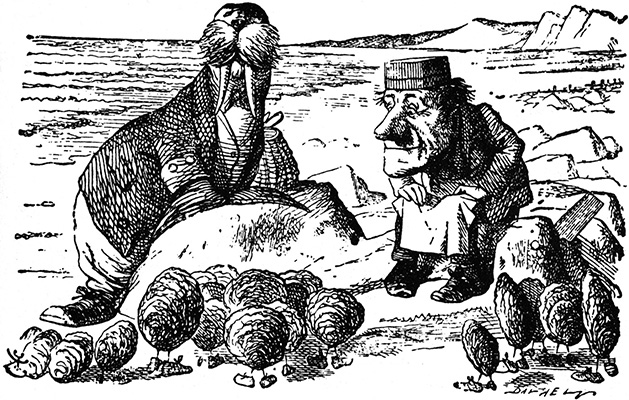Lately I’ve noticed that a few seemingly benign conversations have elicited a strong emotional reaction in me. Not a full red mist of rage but enough of an uncomfortable squirm that I felt compelled to dig a little deeper.
Armed with a quizzical eyebrow and a healthy dollop of curiosity, I came to the following revelation : my inner conflict did not lie in the ideas being expressed but how they were being expressed ; that is, the specific words my conversational partner was choosing to use within the context of the discussion.
Somewhere along the lines, their meaning was being distorted by my translation. To borrow from the inimitable Inigo Montoya : “You keep using that word, I do not think it means what you think it means.”

Image by Diego Schtutman via Shutterstock
Do you ever consider the words you use and who you are using them with? Do you know other people’s trigger words? Do you know your own?
Now, I realise this level of attention may sound impractical, really I do, but before you write me off as a hair-splitting oddity, indulge me a moment to consider the purpose of spoken communication in the first place.
Generally speaking, language is a tool through which we share information, but it is so much more than mere data sharing. This is especially true of speech, a form of human communication that is as much a reflection of the relationship between the individuals involved as what they are actually saying. When we talk it is with the intent of immediate consumption and as such is shaped by an anticipated or actual response.
Ursula K. Le Guin in her wonderful essay titled Telling is Listening compared spoken, face to face communication to that of amoeba sex (titillating, no?). It is not simply a transmission of information from A to B (such as in human sex, which she likens to a lecture in style) but a mutual interchange which she calls intersubjectivity. Normally amoebas will reproduce by division. However, if and when there is a requirement for an exchange of genetic information two of them will connect by melding their pseudopodia into a connected tube. Through this tube the amoebas, mutually responding to each other, swap genetic bits and pieces of themselves. In her analogy, Le Guin believes this is “very similar to how people unite themselves and give each other parts of themselves – inner parts, mental not bodily parts – when they talk and listen.”
What she wishes to draw our attention to is that human speech is an act of dynamic connection. When we talk and when we listen, we are not just responding but becoming part of an action. What is interesting to me is that, whether we realise it or not, every time we speak, we risk being misunderstood. We risk an imbalanced exchange. How often have you assumed an understanding with someone only to find you were both talking at cross purposes? She asserts that much like amoebas “successful human relationship involves entrainment – getting in sync. If it doesn’t, the relationship is either uncomfortable or disastrous.”
Which brings me back to my original point about word choice.
There are very few people who learn language from a dictionary. Throughout life we soak up our vocabulary and how to use it through the process of osmosis, which naturally influences not only the words we use but what they mean to us. Thus, we find ourselves using words that are ostensibly identical but with discrete, nuanced understandings of meaning intrinsically linked to our own, personal life experiences and learnings. We will find ourselves with overt associations or subconscious biases concerning the use of particular words that will influence how we respond to someone and someone to us when used in conversation.
There are words which one expects to prompt an emotional response, such as profanities, slang or ideological jargon. Depending on the depth of the relationship one will also probably be able to gauge the nature of the anticipated response. Most people however wouldn’t know the word ‘actually’ will inflame a little bit of teenage hostility within me as echoes of my mother, who overly favours the word during arguments, comes screaming back. Or that anything characterised as ‘moist’ to me (yes, even cake) will immediately become less appealing. As I am cognisant of these unwarranted responses, I am often able to temper my reactions to their use accordingly but there are always new ones to add to my repertoire.
I’ll briefly describe a personal example to illustrate. Before publishing our blog posts they are circulated for peer review. One colleague of mine had written on the rewards of being yourself in the workplace, entitled ‘The Importance of Being Earnest’. This title really bugged me (to the point I felt it required being both underlined and highlighted) because it didn’t seem to encapsulate the sentiment of the piece. When I read ‘The Importance of Being Earnest’ I understood it as ‘The Importance of Being Serious’.
Full disclosure – when I queried the use of ‘earnest’ with her, I had done so with the intention to suggest she change the title but quickly realised we both had slightly different interpretations of the word (neither of which were “wrong”). As we discussed our understanding of the word within this context, I began to see the value in simply having the conversation. I understood her piece better. I understood her better. I understood myself better. And I hope she saw it as an opportunity to understand me better. It was a neat little instance of pseudopodia melding.
I am not advocating you apply this level of attention to every conversation you have. What I am suggesting though, is engaging more awareness and curiosity around vocabulary as a means to better understand the people you interact with on a daily basis. Would you listen to a badly tuned radio? Consider your trigger words. Don’t let personal static distort your comprehension. Wiggle the dial and listen harder. If you sense an incongruity between yourself and your conversational partner, take the time to join pseudopodia and pull apart your words to uncover underlying assumptions and associations. It is an experiment I have found particularly rewarding when it comes to deepening relationships and I hope you might too.

 Diego Schtutman
Diego Schtutman










